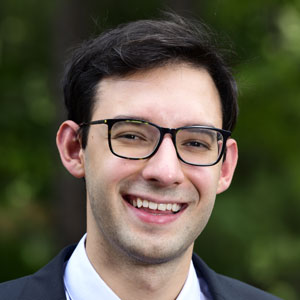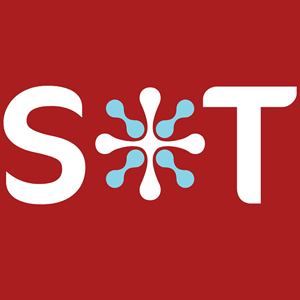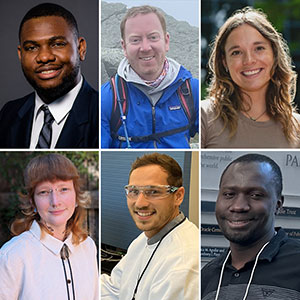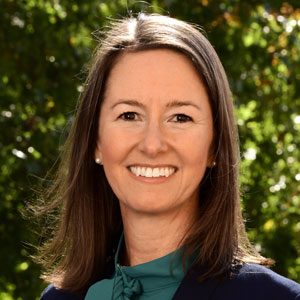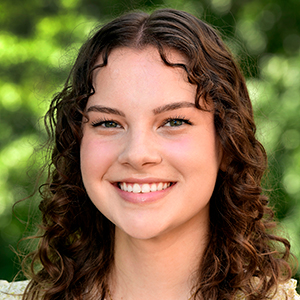NIEHS researchers and trainees, together with scientists from across the state, gathered Oct. 9 for the North Carolina Society of Toxicology (NCSOT) annual meeting at Research Triangle Institute. The event — complete with presentations, a career panel, and poster sessions — provided a forum to advance microplastics research and develop the next generation of toxicologists working to understand the harmful effects of chemicals and other substances.
“We continue to set records for meeting registration and were thrilled that almost half of our registrants this year were trainees,” said Kelly Shipkowski, Ph.D., of the NIEHS Division of Translational Toxicology (DTT), who led the meeting as NCSOT President. “The keynote presentations and panel discussion were outstanding, and we’ve received nothing but positive feedback.”
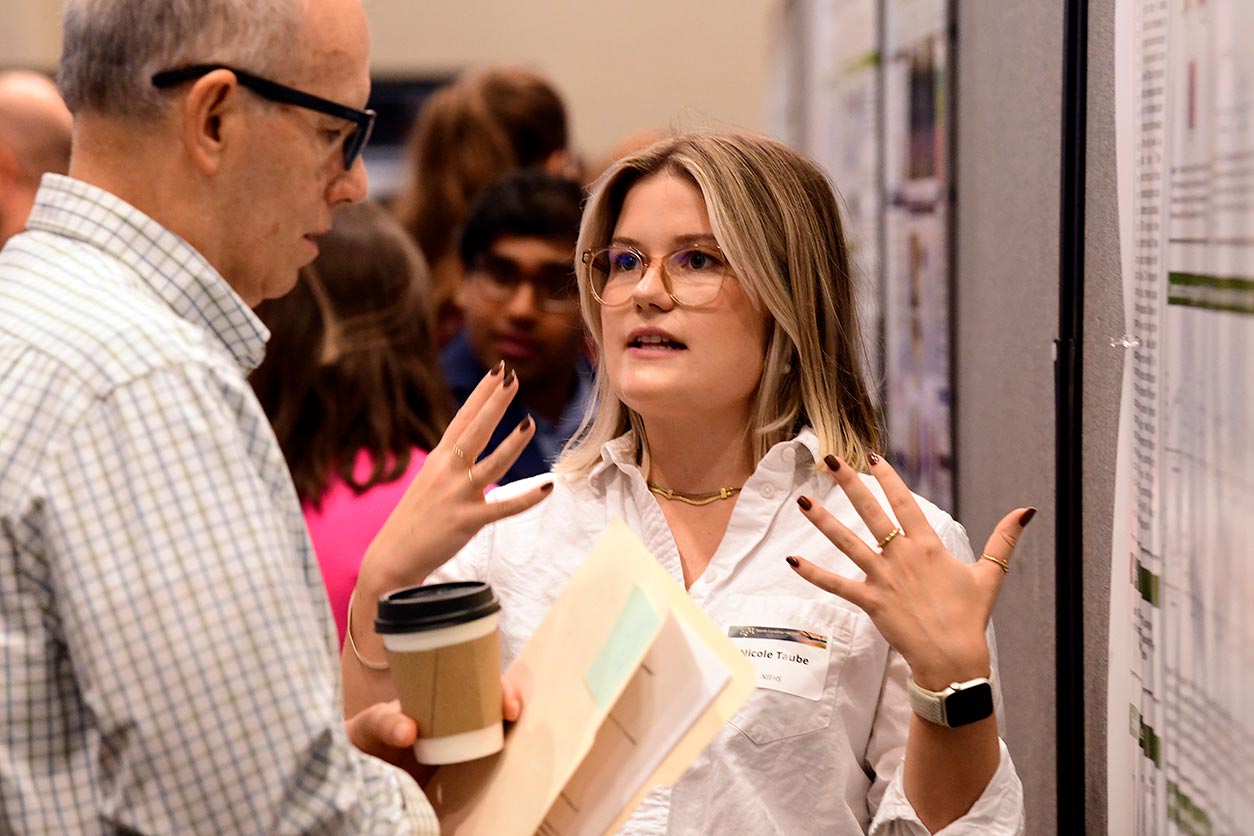
Advancing microplastics research
During the panel discussion, Suril Mehta, Dr.P.H., a DTT staff scientist, described the growing economic, environmental, and public health implications of microplastics contamination.
“The challenge of resolving these issues requires attention across all phases of the plastics life cycle from production and usage to disposal and recycling,” he said.
Mehta emphasized the need for additional research on exposure and health effects of microplastics to guide action and inform policy, as outlined in a recent White House-led interagency report on plastic pollution. The success of that work, he said, depends on a willingness to collaborate and communicate results.
“It’s important not only to conduct studies but also to ensure that your work is incorporated and integrated with other research and disseminated to those that make the decisions that will impact society,” Mehta said.
Advising young scientists
Emphasis on cooperation and communication skills continued during a career panel presentation. Four scientists from the academic, public, and private sectors met with a group of approximately 40 undergraduate and graduate students to offer advice on how to break into and advance in the field of toxicology.
Darlene Dixon, D.V.M., Ph.D., acting chief of the DTT Mechanistic Toxicology Branch, joined others on the panel in encouraging students to develop writing skills, network with peers and mentors, and develop broad skillsets.
“You have to persevere,” Dixon said. “There are going to be times when you feel like there’s no light at the end of the tunnel, but you must stay the course, and if passion is there, it’s not a chore. It’s not your job, it’s you wanting to do that next experiment, ask that next question, get that answer so that you can share it with others.”
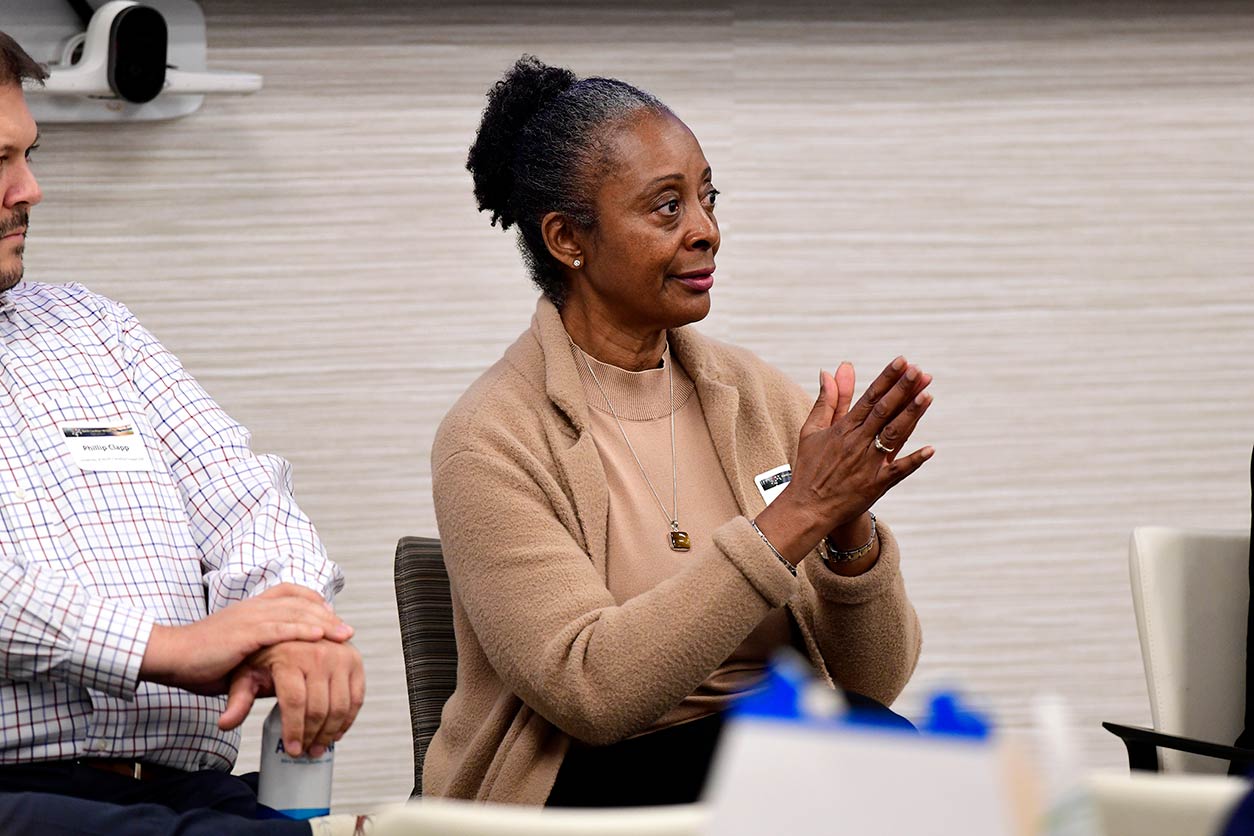
Communicating research
Passion was in abundance during the poster and platform sessions of the meeting. Six NIEHS scholars and trainees were among more than 60 individuals presenting their research.
Ricardo Scheufen Tieghi, an NIEHS undergraduate trainee from the University of North Carolina at Chapel Hill, viewed the meeting and the poster competition as an enjoyable opportunity to gain clarity in his choice between medical school or graduate school.
Nicole Taube, Ph.D., presenting a poster in the postdoctoral fellow category, saw the competition as a chance to communicate science to a broader audience. She also found it to be a good venue for networking.
“You get good feedback from people who might look at your research and say, ‘Oh I had an idea about this,’” she explained. “I had another postdoc come up and say, ‘I see this, too. We should talk about it.’”
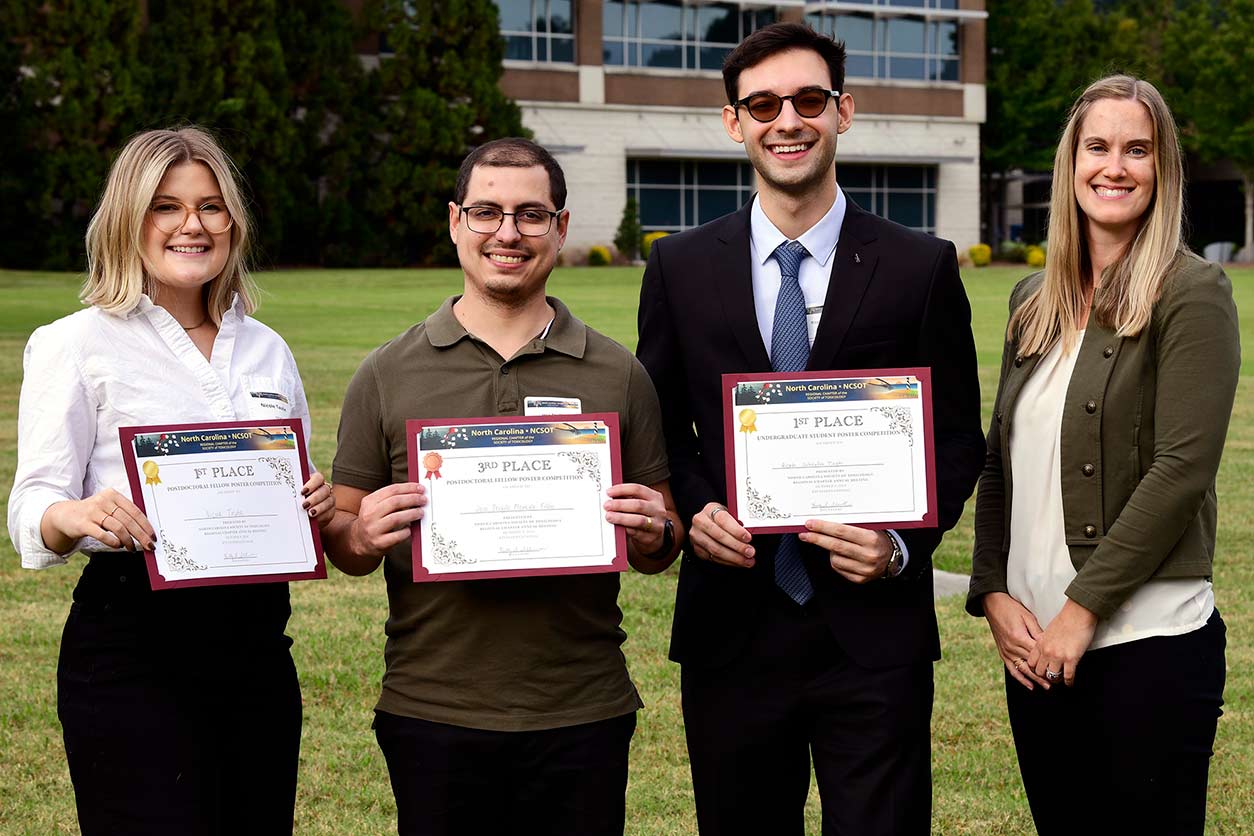
Shipkowski was impressed with the science communicated as well.
“We had exceptional poster and platform presentations from our trainees, who set the bar higher and higher every year in terms of the quality and novelty of the research being presented,” she said.
(Douglas Murphy, Ph.D., is a technical writer-editor in the NIEHS Office of Communications and Public Liaison.)





